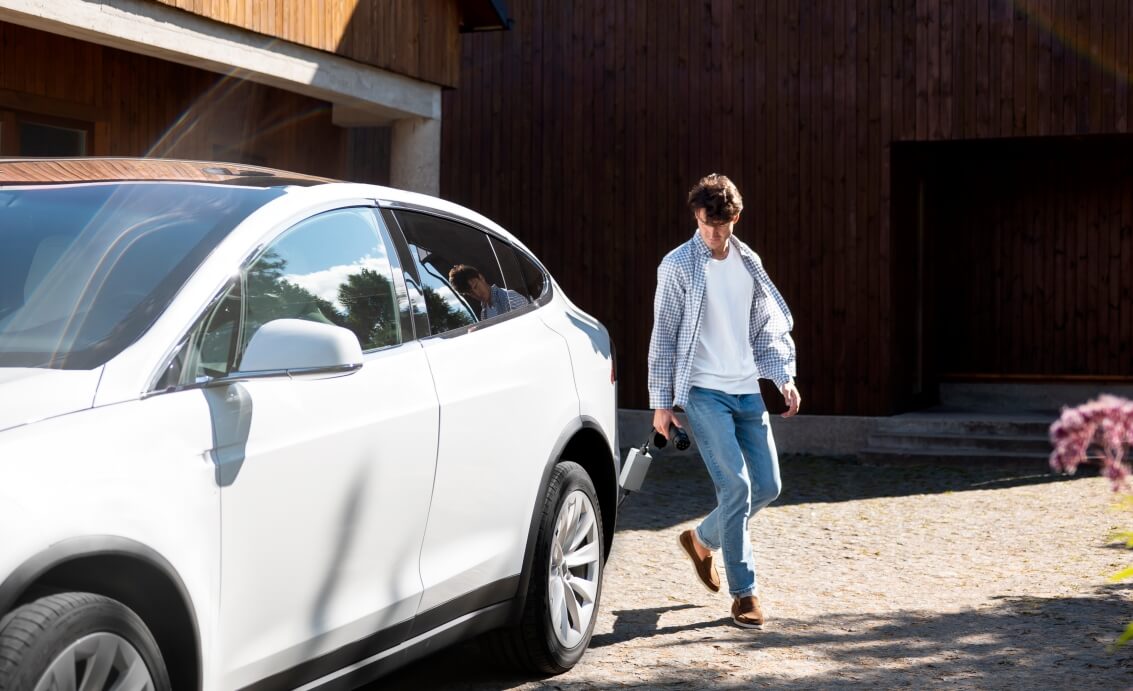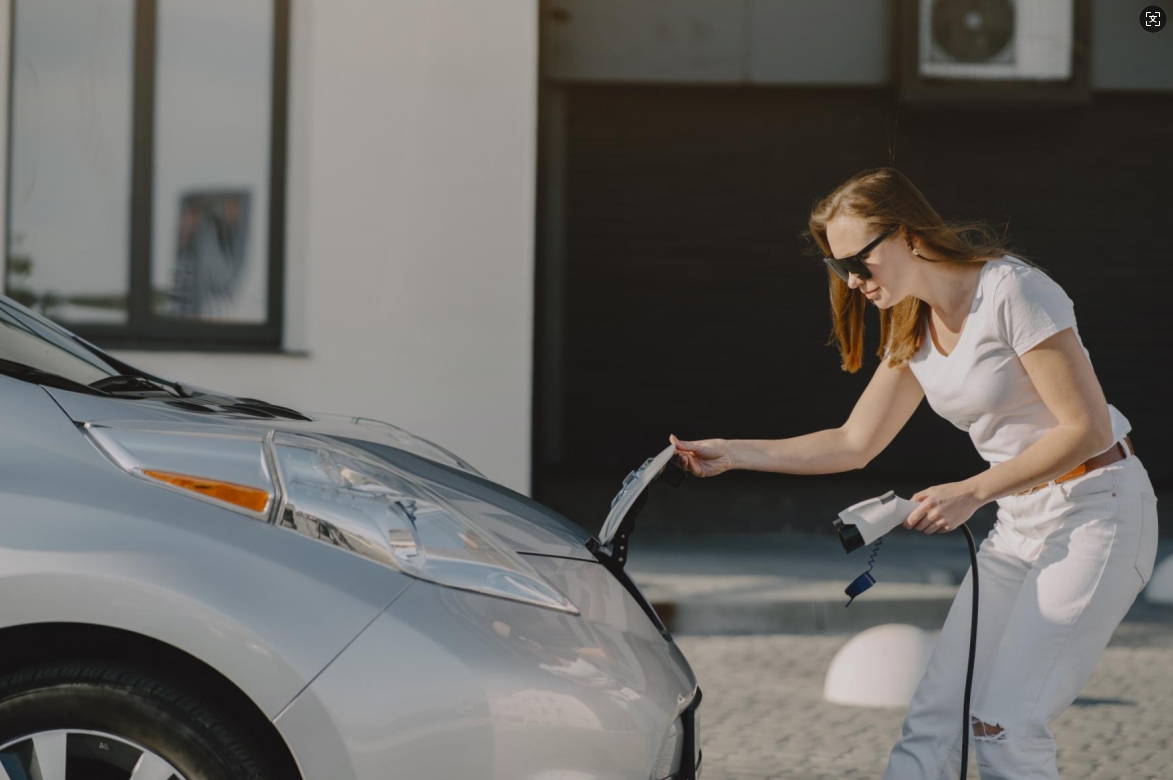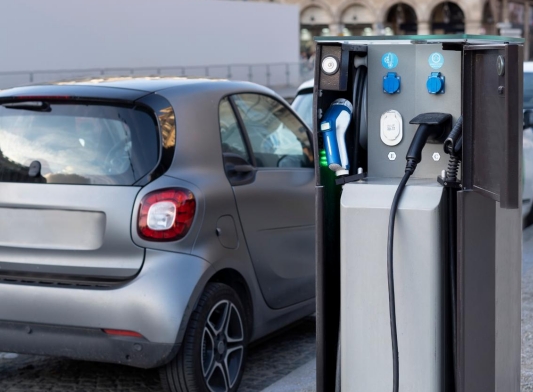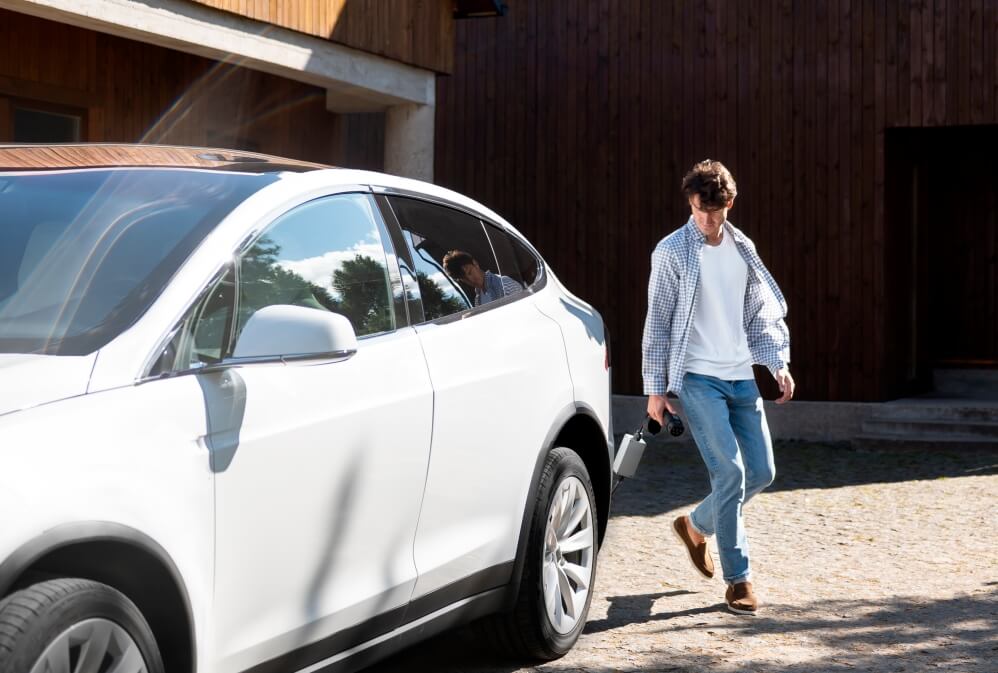Mastering Nissan Leaf Charging: From Plug Types to Charging Times
The Nissan Leaf's charging system uses two distinct plugs because each serves a fundamentally different purpose - one manages slower, more controlled charging. At the same time, the other enables rapid power delivery directly to the battery.
Understanding your Nissan Leaf's charging capabilities begins with recognizing the physical connection points. The Nissan Leaf charging plug system is straightforward yet sophisticated, designed to accommodate everything from overnight home charging to rapid highway top-ups. This guide will help you master the physical connectors and the practical timing expectations for each charging method.

The Two Plug System: J1772 and CHAdeMO Explained
Every Nissan Leaf comes with two charging ports, each serving a distinct purpose in your charging strategy.
1. J1772 Plug - The AC Charging Standard
The J1772 (or "J-plug") is the universal standard for Level 1 and Level 2 AC charging in North America and many other markets. This is the primary charging port you'll use for daily charging. The robust, five-pin connector features safety mechanisms that prevent disconnection while charging and ensure the system is properly grounded.
2. CHAdeMO Plug - The DC Fast Charging Solution
The larger, round CHAdeMO connector is specifically designed for high-power DC fast charging. Unlike the J1772 port that sends alternating current to the car's onboard charger, the CHAdeMO Nissan Leaf charging plug delivers direct current straight to the battery, bypassing the vehicle's internal charging equipment for much faster recharge times.
Understanding Your Nissan Leaf Charging Plug Options
The choice between these two plugs isn't optional—your charging speed determines it:
- Daily Home/Work Charging: Always uses the J1772 connector
- Rapid Public Charging: Requires the CHAdeMO connector
- Emergency/Portable Charging: Utilizes the J1772 with included adapter
Charging Times: What to Expect
Charging duration varies significantly based on which Nissan Leaf charging plug you use and your vehicle's battery capacity.
Level 1 Charging (J1772 Plug)
- Source: Standard 120V household outlet
- Rate: 3-5 miles of range per hour
- 40 kWh Battery: 40+ hours for full charge
- 62 kWh Battery: 60+ hours for full charge
- Best For: Emergency backup, occasional overnight use
Level 2 Charging (J1772 Plug)
- Source: 240V home charging station or public charger
- Rate: 10-25 miles of range per hour
- 40 kWh Battery: 7.5-8 hours for full charge
- 62 kWh Battery: 11.5-12 hours for full charge
- Best For: Primary home charging solution
DC Fast Charging (CHAdeMO Plug)
- Source: Public fast-charging stations
- Rate: 80% charge in 30-45 minutes
- 40 kWh Battery: 20% to 80% in ~30 minutes
- 62 kWh Battery: 20% to 80% in ~45 minutes
- Best For: Long-distance travel, quick top-ups
Practical Charging Scenarios
The Daily Commuter (Most Common)
For the average driver covering 30-40 miles daily, a Level 2 home charger connected via the J1772 plug is ideal. Plugging in overnight provides a full "tank" daily with minimal effort.
The Road Tripper
Long-distance travelers should plan routes around DC fast charging stations. The CHAdeMO plug enables quick 30-minute stops every 150-200 miles, making interstate travel practical.
The Urban Dweller
City drivers without home charging can rely on public Level 2 stations (J1772) for overnight parking and strategically use CHAdeMO fast chargers when needed quickly.
Maximizing Your Charging Experience
Battery Preservation Tips
- Use Level 2 charging as your primary method for battery longevity
- Reserve DC fast charging (CHAdeMO) for when you genuinely need rapid charging
- Avoid regularly charging to 100% unless necessary for long trips
- Try to keep the battery above 20% state of charge when possible
Future-Proofing Considerations
While the current Nissan Leaf charging plug configuration uses CHAdeMO for fast charging, the industry is shifting toward the CCS standard in many markets. However, CHAdeMO infrastructure will remain available for years, ensuring your Leaf remains supported.
Mastering your Nissan Leaf's charging system means understanding both the physical plugs and the timing implications of each choice. By strategically using the J1772 plug for daily needs and the CHAdeMO connector for rapid charging situations, you can optimize convenience and battery health throughout your ownership experience.
Last Updated on September 26, 2025 by tayniu



